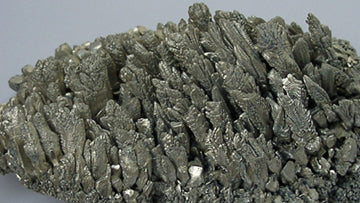
The Importance of Minerals for Optimal Health
Minerals are essential nutrients our bodies require in order to function. In the body there are two types of minerals that we need: macro minerals and trace minerals. If the daily amount needed were to be held in the palm of your hand, the amounts would seem tiny but for the human body they are massive.
The amounts and levels of minerals the human body needs are often negligible, but this also means the slight drop and lack of a particular mineral can be almost catastrophic in the big picture. Minerals are vitally important, and we must not forget it!
The body needs more macrominerals than it does trace minerals. Macrominerals include calcium, phosphorus, magnesium, sodium, potassium, chloride and sulphur. Just magnesium alone is used in over 600 reactions in the body. Trace minerals, while needed in smaller quantities are equally as important for good health, these include iron, manganese, copper, iodine, zinc, cobalt, fluoride and selenium.
Most of the minerals required for the human body are found in the diet. However, lifestyles today do not necessarily contain enough minerals to keep us as healthy as we should be. A broad and varied diet should come close to providing the minerals we need to healthy living however, with certain disorders and poor diet this may not be possible. In some cases, greater control of minerals is required. Take kidney disease for example, where potassium levels must be watched closely and foods with high levels of potassium monitored or avoided. Minerals are essential but must also be balanced to keep a person in optimal health.
What are minerals used for?
Minerals are used to keep you healthy; it is as simple as that. For strong bones and teeth minerals are essential, however and equally as important, minerals convert the food we eat into much needed energy. Minerals cause vital chemical reactions in the body then help us move and keep organs functioning.
What are the main minerals needed in the body?
There are three so-called essential minerals: calcium, iron, magnesium and potassium that our bodies need to survive. There are host of other minerals that are needed for optimal health and this include:
- Phosphorus
- Silicon
- Sodium
- Sulphur
What the essential minerals do
Calcium: Calcium is a mineral most people are familiar with and it mostly known for keeping bones and teeth strong. Calcium is also responsible, in part, for keep a steady and controlled heartbeat. Calcium is vital for healing and ensures blood clots when it must.
Iron: For oxygen to be carried around your body you need red blood cells. Iron makes red blood cells. Without enough iron you can become tired because not enough oxygen is being transported around your body.
Potassium: Potassium is needed to balance the fluids in your body and to keep your heart working and healthy.
Minerals are vitally important for optimal health and just because they are small you should never overlook their importance.
Ron Goedeke
Dr Ron Goedeke, specialises in alternative and functional medicine. He is a foundation member of the New Zealand college of Appearance medicine and has been a member of the American Academy of Anti-aging medicine since 1999. With over 20 years of experience in the anti-aging field, Dr Ron Goedeke is recognized as one of New Zealand’s leaders in this new and growing field of medicine. Read more
Magnesium Information
For everything you need to know about magnesium and magnesium supplements, check out our comprehensive information page here.
Magnesium
We’ve created a magnesium supplement with a combination of three types of highly absorbable magnesium at a therapeutic dose. Our magnesium comes as an easy to mix, great tasting powder to ensure optimal absorption. To learn more about our magnesium, check out the product page here.









